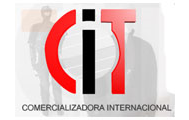Polycarbonate Passport Issuance Will Reach Over 125 Million Annually by 2025 as Governments Look to Increase Physical Document Security
LONDON, Jan. 21, 2021 /PRNewswire/ -- As world governments emerge from the other side of the COVID-19 pandemic, the worldwide shipments of polycarbonate passports will rise from 60.1 in 2020 to 125.5 million in 2025, according to ABI Research, a global tech market advisory firm. As vaccinations and immunizations roll out, borders will begin to open and international travel opportunities will see a rise in citizen passport renewals, breathing life back into the passport market after a significant downturn in 2020.
"2021 is widely understood to be the year in which the United States will move from paper to polycarbonate passports and drive annual shipments into 2025, accompanied by projects in Colombia, Bolivia, and Nigeria," says Sam Gazeley, Digital Security Research Analyst at ABI Research.
While the passport market was hit hard by the border closures and restrictions on international travel as a result of COVID-19, strong growth will be seen from 2021 onward. Where polycarbonate passport shipments fell from 86.6 million in 2019 to 60.1 in 2020, they will have recovered fully by 2022, at 103.9 million units.
The regions sporting the highest growth will be Latin America and the Middle East and Africa, as countries like Colombia, Bolivia, and Nigeria, look to adopt polycarbonate passport data pages in the drive to increase the physical security of travel documents. Latin America will see shipments increase from 3.9 million to 7.4 million shipments from 2020 to 2025 and the Middle East and Africa, during the same forecast period, will increase from 2.8 million to 7.1 million shipments. Furthermore, the United States is likely to make the transition from paper to polycarbonate data pages in 2021. As a high-volume passport-issuing country, U.S. adoption will lead to considerable shipments over a short period of time. ABI Research forecasts that the number of polycarbonate passports issued in North America will increase from 12.8 million in 2022, to 24.9 million in 2025.
"The polycarbonate opportunity is also being driven by three primary solutions of color-laser personalization. Thales' Color Laser Shield, IDEMIA's LASINK, and Veridos' CLIP ID. Developments in these solutions as it relates to scalability, modularity, and reduction of Average Selling Price (ASP) to increase accessibility to emerging economies and integration with pre-existing personalization infrastructure will be key to fully unlocking the polycarbonate opportunity within passports," Gazeley concludes.
These findings are from ABI Research's Passports and Polycarbonate: Securing the Datapage market data report. This report is part of the company's Digital Security research service, which includes research, data, and analyst insights. Market Data spreadsheets are composed of deep data, market share analysis, and highly segmented, service-specific forecasts to provide detailed insight where opportunities lie.
About ABI Research
ABI Research provides strategic guidance to visionaries, delivering actionable intelligence on the transformative technologies that are dramatically reshaping industries, economies, and workforces across the world. ABI Research's global team of analysts publish groundbreaking studies often years ahead of other technology advisory firms, empowering our clients to stay ahead of their markets and their competitors.
ABI Research???????????????????????????? ?1990???????????????????????????????????????????????????? ????????????????
For more information about ABI Research's services, contact us at +1.516.624.2500 in the Americas, +44.203.326.0140 in Europe, +65.6592.0290 in Asia-Pacific or visit www.abiresearch.com.
Contact Info:
Global
Deborah Petrara
Tel: +1.516.624.2558
pr@abiresearch.com
View original content to download multimedia:http://www.prnewswire.com/news-releases/polycarbonate-passport-issuance-will-reach-over-125-million-annually-by-2025-as-governments-look-to-increase-physical-document-security-301211865.html
SOURCE ABI Research




